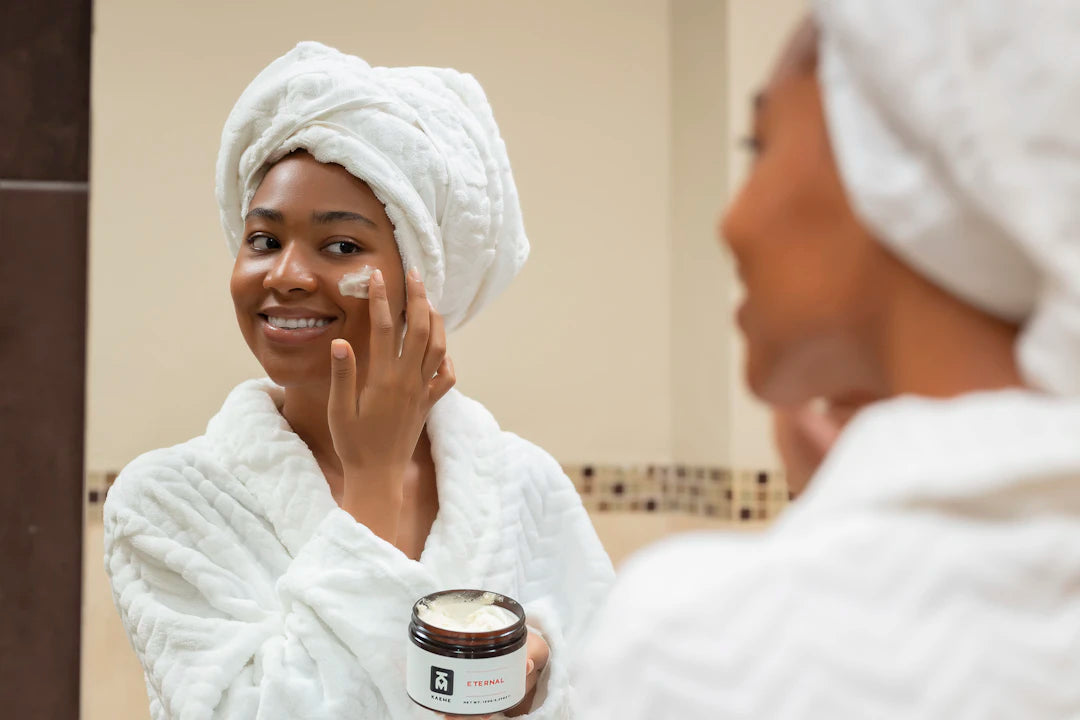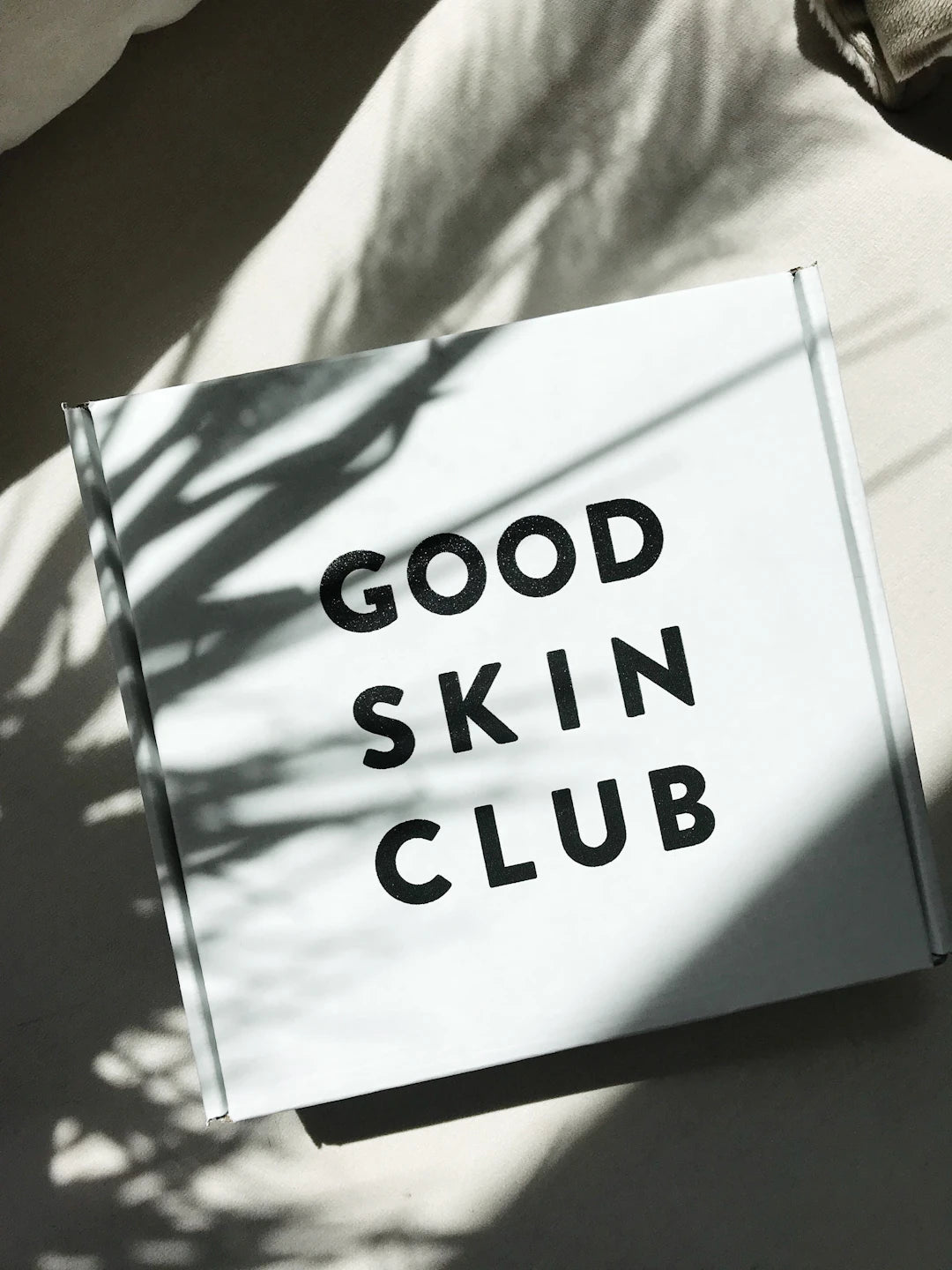Skincare Mythbusters: Uncovering the Truth Behind Common Skincare Misconceptions

In the world of skincare, there’s an overwhelming amount of information that can leave anyone confused. With countless products, trends, and advice available, it can be difficult to know what is true and what is simply a myth. In this blog post, we’ll break down some of the most common skincare myths and shed light on the facts, helping you to build a solid skin care routine that promotes both healthy skin and ultimate confidence.
The Myth of "More Product Equals Better Results"
One prevalent belief is that slathering on more products will lead to better results. This isn’t always the case. Often, using too many products can overwhelm your skin and lead to issues like clogged pores, irritation, or even breakouts. It's essential to opt for quality over quantity when it comes to your skin care routine.
Finding Balance
To achieve optimal results, aim for a streamlined regimen that includes essential components:
- Cleanser
- Toner
- Moisturizer
- Sun protection
Integrating a microdermabrasion kit once or twice a week can also help enhance your routine by gently exfoliating, revealing fresher skin while keeping your pores clear.
Myth: Oily Skin Doesn't Need Moisturizer
Many individuals with oily skin believe that they should skip moisturizer entirely. In reality, all skin types require moisture, regardless of oil production. The key is to choose a lightweight, non-comedogenic moisturizer that suits your specific skin type.
The Role of Hydration
Moisturizers help to maintain the skin's barrier, preventing dehydration and excess oil production. When your skin is properly balanced, it can minimize the appearance of pores and reduce the likelihood of breakouts. Whether you’re targeting antiaging or seeking skin tightening effects, proper hydration is crucial.
Myth: Natural Products Are Always Better
The belief that "natural" equates to "better" isn’t always accurate. Just because a product is marketed as natural doesn’t mean it's free from irritants or harmful ingredients. In fact, many natural ingredients can cause reactions, just as some synthetic ingredients can be beneficial for skin.
The Science of Ingredients
Always research the ingredients in your skincare products. Look for formulations backed by dermatological science. Some effective anti-wrinkle products might contain peptides or retinoids, which can actually help with skin cell turnover and reduce the signs of aging.
Myth: Sun Exposure Is Not a Major Concern in the Winter
Another pervasive myth is that sunscreen is only necessary during the summer months. The truth is, the sun’s harmful rays can damage your skin year-round. Snow can reflect up to 80% of UV rays, putting your skin at risk even in colder climates.
Year-Round Protection
To protect your skin from UV damage, apply a broad-spectrum sunscreen of at least SPF 30 every day, regardless of the season. This daily commitment is crucial for maintaining youthful skin and preventing premature aging signs.
Myth: You Can Shrink Your Pores
Pore size is largely determined by genetics; you can’t actually reduce the size of your pores. However, you can minimize their appearance. Regular exfoliation, using a microdermabrasion kit, and keeping your skin clean can help maintain a smooth texture and make pores appear smaller.
Boosting Skin Appearance
Incorporating a good toner into your skincare routine can also assist in tightening the appearance of your pores. Ingredients like witch hazel or niacinamide can help control oiliness and minimize the look of pores.
Myth: Antiaging Products Are Only for Older People
Many believe antiaging products are solely for those who have already begun showing signs of aging. In fact, starting an antiaging regimen in your late twenties or early thirties can make a significant difference. Prevention is key!
Importance of Early Intervention
Using products that focus on hydration, wrinkle prevention, and skin renewal can stave off signs of aging. Look for serums that contain ingredients like antioxidants, hyaluronic acid, or retinol to kickstart your journey toward youthful skin.
Myth: You Only Need to Exfoliate When Your Skin Looks Dull
Many people think that exfoliation is only necessary when their skin appears lackluster. Regular exfoliation, whether through physical exfoliants, like scrubs, or chemical exfoliants, like AHAs and BHAs, is essential for keeping skin healthy.
The Role of Exfoliation
Exfoliating helps to remove dead skin cells, encouraging cell turnover and preventing clogged pores. Additionally, smoother skin allows for better absorption of other skincare products, making your skin care routine more effective.
Myth: If You Don’t Have Problematic Skin, You Don’t Need a Skincare Routine
Even if your skin isn’t breaking out or showing signs of aging, a skincare routine is still essential. Your skin faces multiple environmental aggressors daily—pollution, sun exposure, and harsh weather conditions—so it needs proper care and protection.
Building a Protective Routine
Invest time in a solid skincare routine that includes cleansing, moisturizing, and sun protection. Diversifying with high-quality products will help you maintain a healthy complexion, regardless of whether you are battling specific skin issues.
Myth: Expensive Products Are More Effective
While high-end skincare products often come with luxury packaging and marketing, price does not always equate to efficacy. Many drugstore brands offer excellent skincare options that can be just as effective, if not more so, than their expensive counterparts.
Smart Shopping Tips
When selecting skincare products, focus on the ingredients, reviews, and results rather than the price tag. Create a routine that suits your specific skin type and budget without compromising quality.
Myth: Eating Greasy Foods Causes Acne
A common assumption is that greasy food directly causes acne. While diet can influence skin health, hormone levels play a more significant role in acne production. Regularly consuming a balanced diet with plenty of fruits, vegetables, and water is essential for overall skin health.
The Connection Between Diet and Skin
Incorporate nutrient-rich foods that promote a healthy complexion. Anti-inflammatory foods, such as salmon, avocados, and nuts, can improve skin appearance and are beneficial when integrated into your skin care routine.
Myth: You Can Get All Your Nutrients Through Skincare Alone
Lastly, it's important to note that while topical skincare products can deliver beneficial ingredients directly to your skin, they cannot replace a healthy diet. The body’s overall health is reflected in the skin, so it’s essential to nourish your body internally.
The Holistic Approach to Skincare
Combining a good skincare routine with balanced nutrition and hydration will yield the best results. Look for ways to incorporate hydration, nutrient-dense foods, and effective skincare treatments to promote a radiant and youthful appearance.
Uncovering the Truth for Beautiful Skin
By debunking these common skincare myths, you can create a more effective skin care routine that meets your unique needs. Understanding the facts behind skincare will empower you to make informed decisions about your products and ultimately lead to healthier, more radiant skin. Remember, it’s not just about what you apply on the surface—it’s about the holistic approach to nurturing your skin from the inside out. Persistently educate yourself, remain curious, and enjoy the journey toward achieving your best skin!


